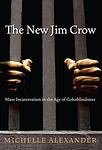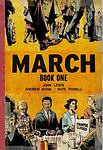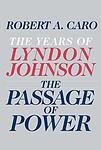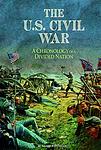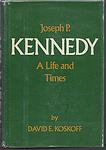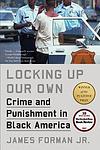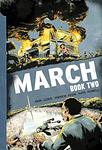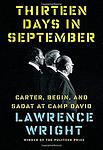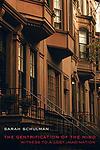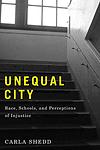The Greatest "Nonfiction, American History" Books Since 2010
Click to learn how this list is calculated.
This list represents a comprehensive and trusted collection of the greatest books. Developed through a specialized algorithm, it brings together 286 'best of' book lists to form a definitive guide to the world's most acclaimed books. For those interested in how these books are chosen, additional details can be found on the rankings page.
Genres
The "American History" category encompasses a broad range of books that delve into the events, figures, and forces that have shaped the United States from its pre-colonial days to the present. This genre includes works on pivotal moments such as the American Revolution, Civil War, and civil rights movements, as well as studies of political, social, and cultural developments across various eras. It covers biographies of influential leaders, analyses of policy changes, and examinations of societal shifts. Whether providing comprehensive overviews or focusing on specific incidents or decades, books in the American History category aim to illuminate the complexities of the nation's past, offering readers insights into the events that have defined the American experience and the context for its ongoing evolution.
Countries
Date Range
Reading Statistics
Click the button below to see how many of these books you've read!
Download
If you're interested in downloading this list as a CSV file for use in a spreadsheet application, you can easily do so by clicking the button below. Please note that to ensure a manageable file size and faster download, the CSV will include details for only the first 500 books.
Download-
1. The Immortal Life of Henrietta Lacks by Rebecca Skloot
The book tells the story of Henrietta Lacks, a poor African American tobacco farmer whose cells, taken without her knowledge in 1951, became one of the most important tools in medicine, vital for developing the polio vaccine, cloning, gene mapping, and more. Henrietta's cells have been bought and sold by the billions, yet she remains virtually unknown, and her family can't afford health insurance. The book explores the collision between ethics, race, and medicine; of scientific discovery and faith healing; and of a daughter consumed with questions about the mother she never knew.
-
2. The Warmth Of Other Suns by Isabel Wilkerson
"The Warmth of Other Suns" is a powerful and deeply moving narrative that chronicles the Great Migration, a significant event in American history that saw millions of African Americans leave the South in search of better opportunities and freedom from racial oppression. Through the compelling stories of three individuals, the book explores the challenges, triumphs, and sacrifices made by these courageous migrants as they embarked on a journey to find a new life in the North and West, ultimately reshaping the social and cultural landscape of America.
-
3. The New Jim Crow by Michelle Alexander
"The New Jim Crow" is a thought-provoking and eye-opening book that examines the deeply ingrained racial bias within the American criminal justice system. Drawing on extensive research and personal anecdotes, the author explores how the War on Drugs has disproportionately targeted and marginalized Black communities, leading to a modern-day system of racial control and oppression. This powerful critique challenges readers to confront the systemic racism that continues to perpetuate inequality and injustice in the United States.
-
4. Evicted: Poverty and Profit in the American City by Matthew Desmond
This book provides an in-depth look at the housing crisis in America, focusing on eight families in Milwaukee who are struggling to keep a roof over their heads. The author explores the role of eviction in perpetuating poverty, illuminating the business of landlords and the harsh reality of tenants in impoverished neighborhoods. The book offers a close examination of the intersection between profit and poverty, revealing how both are intricately linked in the American housing market.
-
5. March: Book One by John Lewis
"March: Book One" is a graphic novel that depicts the early life of a key figure in the American civil rights movement. Raised in rural Alabama, he grows up inspired by the activism surrounding the Montgomery Bus Boycott and the words of Martin Luther King Jr., which sets him on the path of nonviolent protest. The novel highlights his commitment to the fight for equal rights and his journey from a young boy on a farm to one of the key figures in the civil rights movement.
-
6. The Passage Of Power: The Years Of Lyndon Johnson by Robert Caro
"The Passage of Power: The Years of Lyndon Johnson" by Robert Caro is the fourth volume in his acclaimed biography of the 36th President of the United States. This book covers the years from 1958 to 1964, including Johnson's ascent to the presidency following the assassination of John F. Kennedy. Caro explores Johnson's struggles to pass civil rights legislation, his relationship with Kennedy's family, and his efforts to establish his own presidential legacy. The book also delves into Johnson's personal life, including his marriage to Lady Bird Johnson and his health issues. Overall, "The Passage of Power" provides a comprehensive and insightful look into one of the most complex and consequential figures in American political history.
-
7. Five Days at Memorial: Life and Death in a Storm-Ravaged Hospital by Sheri Fink
The book provides an in-depth investigation into the crisis at a New Orleans hospital in the wake of Hurricane Katrina. It delves into the harrowing five days where staff, patients, and their families were trapped in the hospital without power or a functioning evacuation plan. The narrative explores the ethical dilemmas faced by the medical staff, including alleged euthanasia of critically ill patients, and the subsequent legal battles, raising profound questions about end-of-life care and disaster management.
-
8. The Bully Pulpit: Theodore Roosevelt, William Howard Taft, And The Golden Age Of Journalism by Doris Kearns Goodwin
This historical work delves into the vibrant era of early 20th-century America, exploring the close friendship and eventual political rivalry between two presidents, Theodore Roosevelt and William Howard Taft. It also highlights the crucial role of muckraking journalists who, with the support of Roosevelt's bully pulpit, exposed corruption and galvanized public opinion. The narrative weaves together the personal and political dynamics that shaped the Progressive Era, showcasing how these leaders and the press collectively brought about significant reforms and forever transformed the American political landscape.
-
9. The Yellow House by Sarah M. Broom
"The Yellow House" is a memoir that tells the story of a hundred years of the author's family and their relationship to home in a neglected area of one of America's most mythologized cities, New Orleans. The narrative follows the author's journey from growing up in the titular house in New Orleans East, a largely ignored part of the city, to her pursuit of education and a career as a journalist, and her eventual return to New Orleans after Hurricane Katrina. The book explores themes of race, poverty, and inequity in America, while also being a deeply personal exploration of family, identity, and place.
-
10. Malcolm X: A Life of Reinvention by Manning Marable
This biography provides an in-depth exploration of Malcolm X's life, from his early days of crime and imprisonment to his transformation into one of the most influential African-American leaders. It delves into his complex relationships, his evolving political beliefs, and his controversial views on race and religion. The book also examines his assassination, shedding new light on the circumstances around his death and the conspiracy theories that followed.
-
11. A World On Fire:Britain’s Crucial Role In The American Civil War by Amanda Kolpin, Amanda Peterson, Susan S. Wittman
"A World on Fire" is a comprehensive account of Britain's involvement in the American Civil War. The book explores the political, economic, and social factors that influenced Britain's decision to remain neutral, despite strong sympathies for the Confederacy. It also delves into the impact of the war on British society, including the role of British citizens in the conflict and the effects of the Union blockade on British trade. The authors provide a detailed and engaging narrative of this often-overlooked aspect of Civil War history.
-
12. A History of the World in 100 Objects by Neil MacGregor
This book offers a unique perspective on world history, telling the story of humanity through the examination of 100 man-made objects. The author, a museum director, uses items from the British Museum, ranging from a 2 million-year-old Olduvai stone cutting tool to a contemporary credit card, to explore various themes such as trade, religion, art, science, and politics. The book provides a fascinating lens through which to view the evolution of human civilization.
-
13. The Patriarch: The Remarkable Life And Turbulent Times Of Joseph P. Kennedy by David E. Koskoff
"The Patriarch" is a biography of Joseph P. Kennedy, the patriarch of the Kennedy family. The book covers Kennedy's life from his early days as a successful businessman to his political career, which included serving as the United States Ambassador to the United Kingdom during World War II. The author also delves into Kennedy's personal life, including his marriage to Rose Fitzgerald Kennedy and his relationships with his children, including President John F. Kennedy and Senator Robert F. Kennedy. The book explores Kennedy's successes and failures, as well as his controversial views on topics such as religion and race.
-
14. Days Of Fire: Bush And Cheney In The White House by Peter Baker
"Days of Fire" is a comprehensive account of the presidency of George W. Bush and his vice president, Dick Cheney, during their eight years in the White House. Peter Baker, a journalist who covered the Bush administration for The New York Times, provides a detailed analysis of the key events and decisions that shaped their time in office, including the 9/11 attacks, the wars in Iraq and Afghanistan, Hurricane Katrina, and the financial crisis. Through interviews with key players and extensive research, Baker offers a nuanced portrait of two men who were both praised and vilified for their leadership and legacy.
-
15. After The Music Stopped: The Financial Crisis, The Response, And The Work Ahead by Alan S. Blinder
After the Music Stopped is a comprehensive analysis of the 2008 financial crisis and its aftermath. Alan S. Blinder, a former vice chairman of the Federal Reserve, examines the causes of the crisis, the government's response to it, and the ongoing challenges facing the global economy. Blinder argues that the crisis was caused by a combination of factors, including lax regulation, excessive risk-taking, and a housing bubble. He also explores the various policy responses to the crisis, including the Troubled Asset Relief Program (TARP) and the Dodd-Frank Wall Street Reform and Consumer Protection Act. Finally, Blinder offers recommendations for preventing future financial crises and ensuring long-term economic stability.
-
16. Locking Up Our Own: Crime and Punishment in Black America by James Forman
This book delves into the complex and controversial issue of mass incarceration in the United States, particularly within the African American community. It explores the historical, social, and political factors that contributed to the high rates of black imprisonment. The author examines the role of African American leaders in advocating for tough-on-crime policies and their unintended consequences. The book is a thought-provoking analysis of the intersection of race, crime, and justice in America.
-
17. March: Book Two by John Lewis
This graphic novel continues the memoir of a prominent civil rights leader, chronicling his commitment to nonviolent protest in the fight for racial equality in the United States. It delves into his personal experiences during the early 1960s, including his participation in the Freedom Rides, the historic 1963 March on Washington, and his leadership in the Student Nonviolent Coordinating Committee. The narrative captures the intensity of the movement, the confrontations with segregationist forces, and the internal struggles within the civil rights organizations, all set against the backdrop of the growing civil rights movement and the push for legislation that would eventually lead to the Voting Rights Act of 1965.
-
18. Empire Of Cotton: A Global History by Sven Beckert
"Empire of Cotton" by Sven Beckert is a comprehensive global history of cotton, exploring its impact on the world economy, politics, and society from the 18th century to the present day. Beckert argues that cotton played a crucial role in the development of capitalism, colonialism, and imperialism, and that its production and trade were intimately linked to the exploitation of labor, the growth of slavery, and the rise of industrialization. The book offers a fascinating and thought-provoking perspective on the complex and often violent history of cotton and its enduring legacy in the modern world.
-
19. Thirteen Days In September: Carter, Begin, And Sadat At Camp David by Lawrence Wright
"Thirteen Days In September" by Lawrence Wright is a detailed account of the historic peace negotiations that took place between President Jimmy Carter, Israeli Prime Minister Menachem Begin, and Egyptian President Anwar Sadat at Camp David in September 1978. The book provides a behind-the-scenes look at the intense negotiations and personal dynamics between the leaders, as they worked to reach a peace agreement that would end decades of conflict in the Middle East. Wright's narrative is a gripping and informative account of a pivotal moment in modern history.
-
20. The Gentrification of the Mind by Sarah Schulman
"The Gentrification of the Mind" is a critical examination of the impact of the AIDS epidemic on American society and culture, particularly in relation to urban gentrification. The author argues that the loss of a generation of artists, writers, and thinkers due to the AIDS crisis led to a homogenization of culture and thought, similar to the way gentrification leads to a homogenization of urban neighborhoods. The book is a powerful critique of the erasure of diverse voices and experiences, and a call to remember and honor the lost history of those affected by the epidemic.
-
21. Dreamland: The True Tale of America's Opiate Epidemic by Sam Quinones
This book provides an in-depth exploration of the opioid crisis in America, tracing its origins and examining its devastating impact. It delves into the lives of addicts, doctors, drug traffickers, and families affected by the epidemic, providing a comprehensive look at the complex factors that contributed to the crisis. The narrative also discusses the role of pharmaceutical companies and uncovers how the aggressive marketing of painkillers led to widespread addiction. Additionally, it sheds light on the black tar heroin trade, revealing how it has infiltrated small towns and suburban communities.
-
22. Age Of Fracture by Daniel T. Rodgers
This book delves into the late 20th century in America, a period marked by profound ideological and social fragmentation. It explores how the collective certainties that had defined the post-World War II era began to unravel, giving way to a more fragmented, individualistic, and market-driven society. Through a detailed examination of political, social, and intellectual trends, the narrative uncovers how ideas about power, gender, race, and the economy transformed. The author argues that this shift towards a more fractured society has had lasting impacts on American identity, culture, and politics, fundamentally altering the way Americans understand and engage with the world around them.
-
23. Grant by Ron Chernow
"Grant" is a comprehensive biography of the 18th President of the United States, Ulysses S. Grant. Written by Pulitzer Prize-winning author Ron Chernow, the book explores Grant's early life, military career, presidency, and post-presidential years. Chernow portrays Grant as a complex and often misunderstood figure, highlighting his military genius and leadership during the Civil War, as well as his struggles with alcoholism and financial ruin later in life. The book also delves into Grant's relationships with his wife, Julia, and political figures such as Abraham Lincoln and William Tecumseh Sherman. Overall, "Grant" offers a detailed and nuanced portrait of one of America's most significant historical figures.
-
24. Unequal City by Carla Shedd
"Unequal City" examines the intersection of race, class, and education in the urban environment, focusing on how the American educational and criminal justice systems shape the lives of young people in Chicago. The book delves into the experiences of Chicago high school students, highlighting the stark disparities they face based on where they live and go to school. Through a sociological lens, it explores the systemic inequalities that are perpetuated by institutional policies and practices, revealing how schools and policing policies not only reflect but also reinforce existing social hierarchies, contributing to a cycle of disadvantage for minority and low-income youth.
-
25. Albert Murray: Collected Essays & Memoirs by Albert Murray
This collection of essays and memoirs by a renowned American literary and jazz critic offers a profound exploration of the African-American experience. The author's writings cover a wide range of topics, from music and literature to race and identity, providing readers with an insightful perspective on American culture. His memoirs offer a personal look into his own experiences and thoughts, further enriching his exploration of these themes.
Reading Statistics
Click the button below to see how many of these books you've read!
Download
If you're interested in downloading this list as a CSV file for use in a spreadsheet application, you can easily do so by clicking the button below. Please note that to ensure a manageable file size and faster download, the CSV will include details for only the first 500 books.
Download

